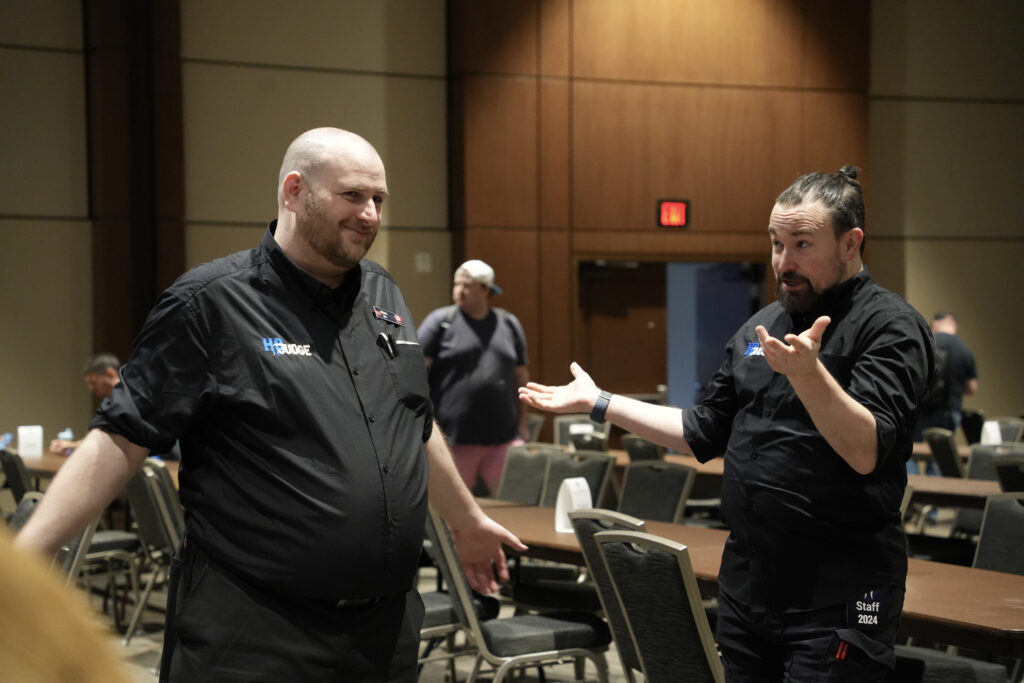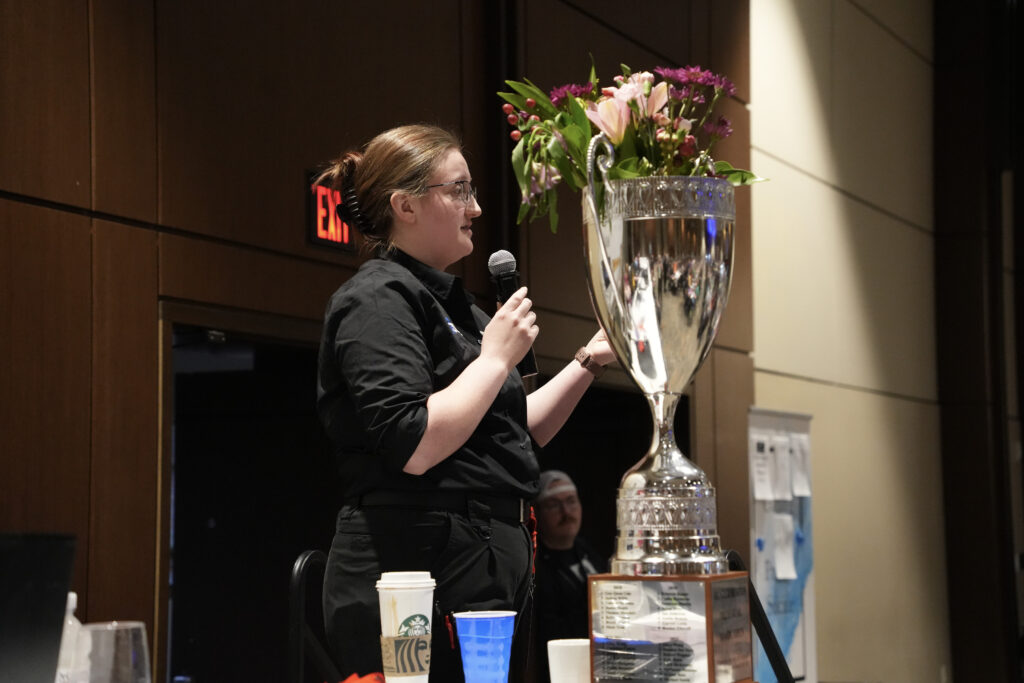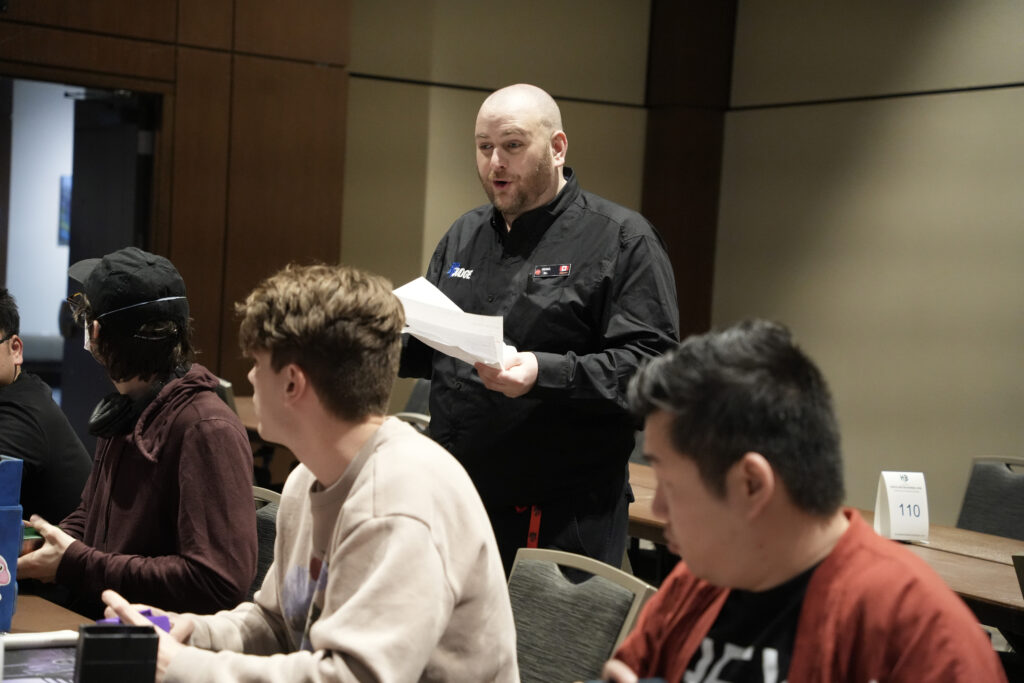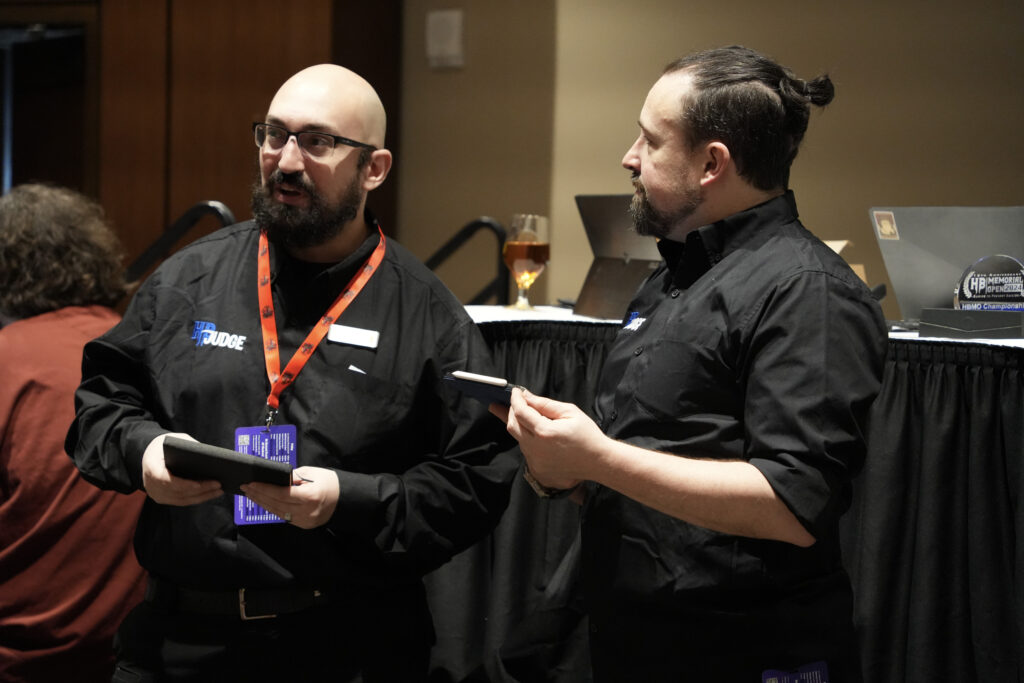A popular travel blog reliably posts the same thing every January 1st: “Help – I need to get 125,000 AA loyalty points and 50 Hyatt nights, and only have 365 days left to get them!” The post is a satire of the forum threads that sprout up around December 15th of each year from panicking travelers who were like the allegorical grasshopper, not realizing they weren’t on track to maintain their status until it was too late to do anything.
Unlike your status at your favorite airline and hotel chain, we don’t want to make maintenance for Judge Foundry a stressful experience, but rather a tool to demonstrate that you continue to meet the expectations for your level and a barometer for you to gauge whether that level is appropriate for your level of engagement.
Judge Foundry’s first maintenance deadline is March 31st, 2025. This post will provide a reminder of the maintenance requirements and give you some hints on how to ensure that you wake up on April 1st, 2025, at the level that best represents your abilities and your ambitions. And we hope that by publishing it now, a year out from that deadline, we’ll head off any posts along the lines of “Help – I need to judge six multi-day events in the next three weekends!”

Maintenance Philosophy
Judge Foundry’s first quality is Quality. It is paramount and existential to us that tournament organizers trust that a judge of a given level can perform at or above a certain floor – if you’re hiring a Level Two Judge, you should expect that judge to be able to run your RCQ, and if that judge can’t, you lose trust that the level system is an accurate representation. As is always important to say: a level is a floor, not a ceiling. Many judges will exceed the expectations of their levels on various measures, but judges are expected to maintain at least the floor of their levels in all four categories.
Judge programs past and present have employed varying forms of maintenance. In the historic judge program, all judges needed to judge an event at least once every six months or they would lose their certifications. For a couple years, Level Two Judges had to write at least one review a year and to write a tournament report every year. Level Three Judges were expected to take each set update quiz and to write a self-review every year. And today, the Flesh and Blood Judge Program expects every judge to take maintenance quizzes, with Level Two Judges required to pass all quizzes and Level One Judges expected to pass at least half. The degree to which failing to fulfill these requirements led to consequences varied.
Our maintenance requirements are focused on three pillars:
- Keep up to date on rules and policy knowledge – These are fulfilled by update quizzes
- Demonstrate tournament skills, personal skills and leadership skills – These are fulfilled by working events
- Provide mentorship and service to other judges – These are fulfilled with program activities
Not every level requires all three pillars – because we have higher expectations for the activity level and connection of higher-level judges, requirements to maintain these levels are higher.
One key goal of the maintenance program is to help judges be aware of their activity level. If a judge is exceeding their required maintenance by an order of magnitude, it might be an appropriate time to ask their mentor about moving to the next level. If a judge is struggling to maintain their level due to lack of events, it might indicate that now is a good time to either put more energy into judging to maintain their level of quality, or step down a level to match their activity.
The maintenance for each level was intended to be trivial for a highly active judge of that level – a highly active L2s will likely complete their requirements by judging two competitive events in the first month of a year. It’s designed to indicate a reasonable level of activity for a judge remaining at that level – a Level Three working four multi-day events in a year and team leading at least once isn’t a grueling schedule. Conversely, for an L5, if they aren’t engaged enough to be on a panel, project, or create educational content, and they aren’t active enough to get to six multi-day events, maybe it’s time for them to consider stepping down to L4.
Maintenance is not designed to winnow the ranks of Judge Foundry. If you’re struggling to complete the requirements despite having an activity level that’s appropriate for your level, talk to your Regional Advocate or to someone on the Levels team, so we can work through the issue. It might be that we designed the requirements to be too difficult for judges in some areas, it might be that there’s an alternate requirement that we should have considered, it might be that the numbers need some tuning. Or it might be that, after some discussion, it turns out that a different level is more appropriate for the amount of involvement in judging you want right now.

Requirements by Level
These are the requirements, as they stand today, on March 31st, 2024. This article isn’t the canonical maintenance source – the official policies for each level are listed on the levels pages for Levels One, Two, Three, Four and Five. As requirements change, these requirements will be kept up to date. I wouldn’t expect significant changes for this wave, but there’s an election between now and the end of the cycle, so the current Levels team obviously can’t make any promises.
Level One
- Pass the annual L1 rules refresh exam
- Choose one —
- Work at least three events
- Play in at least six events, and work at least one event.
- Write or receive a short review about their involvement in events or the judging community
- Maintain membership in Judge Foundry by being up-to-date on their membership dues
Level Two
- Choose one —
- Pass the annual L2/L3 rules refresh exam
- Pass three set update quizzes since the last maintenance period
- Pass the annual L2/L3 policy refresh exam
- Choose one —
- Work at least two competitive events
- Work at least six events
- Write or receive a short review about their involvement in events or the judging community
- Maintain membership in Judge Foundry by being up-to-date on their membership dues
Level Three
- Choose one —
- Pass the annual L2/L3 rules refresh exam
- Pass three set update quizzes since the previous maintenance period
- Pass the annual L2/L3 policy refresh exam
- Choose two —
- Work at least eight competitive events
- Work at least four multi-judge events
- Team lead at a multi-judge event
- Create educational content (ex: article, conference presentation, video, etc.), subject to approval by an L5
- Choose one —
- Write a self review
- Receive an in-depth review, covering multiple events, from an L4+
- Maintain membership in Judge Foundry by being up-to-date on their membership dues
Level Four
- Choose one —
- Pass three advanced set update quizzes since the previous maintenance period
- Pass an Advanced Rules Practice and Advanced Policy Practice test
- Choose three —
- Lead a total of 20 judges as a Team Lead at events
- Head-judge an event with at least five judges
- Work at least six multi-day events
- Serve on one or more L4 advancement panels
- Lead a core project
- Create educational content (ex: article, conference presentation, video, etc.), subject to approval
- Choose one —
- Write a self review
- Receive an in-depth review, covering multiple events, from an L5
- Maintain membership in Judge Foundry by being up-to-date on their membership dues
Level Five
- Choose one —
- Pass three advanced set update quizzes since the previous maintenance period
- Pass an Advanced Rules Practice and Advanced Policy Practice test
- Choose three —
- Lead a total of 30 judges as a Team Lead at events
- Head-judge an event with at least twelve judges
- Work at least six multi-day events
- Serve on one or more advancement panels
- Lead a core project
- Create educational content (ex: article, conference presentation, video, etc.), subject to approval
- Write a self-review
- Maintain membership in Judge Foundry by being up-to-date on their membership dues
Maintenance Procedure
In Winter 2025, we’ll open up maintenance checklists on JudgeApps. You’ll select the appropriate checklist, and fill out how you meet each requirement.
Our goal is that judges who’ve completed their maintenance requirements will be able to fill out their checklists in less than thirty minutes – we don’t want maintaining your certification to feel like filling out your taxes.
Judges who don’t fill out their checklist by March 15th will receive an email from us reminding them to do so.
On April 1st, judges who completed only a checklist for a level under their current level will be relegated to their new level, and judges who didn’t fill out a checklist at all will be marked as uncertified. This will also kick off a one-month grace period for judges to complete their requirements and submit their checklists. We know that life can get busy, so we don’t want to punish judges for missing the deadline by a few days, so anyone submitting a checklist during April will have their level restored with no fuss.
Lastly, we think it’s unnecessary for judges who were just promoted to a level to have to immediately demonstrate that they’re still capable of acting at that level. Judges who are promoted between October 1st and March 31st will be exempt from maintenance for the current cycle – this will either be automatic or judges will be able to select a checklist item for “I was promoted on _____” to fulfill all requirements.

Maintenance Tips
We designed maintenance to be a reflection of judges’ activity throughout a year, not a sprint to be completed at the end of the year. For example, we expect that one way for Level One Judges to maintain their level will be to judge a few sets’ prereleases. Don’t depend on getting staffed for events in the last three weekends of March as a way to complete all your requirements at the last minute.
While many requirements are centered on working events, mentorship requirements can be done outside of events. We know that this work is vital to the development of judges and we want to recognize and reward judges who give their free time to the community even if it reduces the time they can spend at events.
Set update quizzes are only open for a limited window of a couple months. That’s plenty of time to complete your updates, but it also means having to make the time to do them throughout the year rather than being able to complete them all at the last minute. The refresh exams (which will likely exist around the end of 2024) provide an avenue for judges who miss too many quizzes to qualify, but depending on this exam is risky – it may be more difficult than the set updates, and failing it will result in incomplete maintenance. So take your set update quizzes, and consider the refresh exam as a backup option.
One requirement for high-level judges is to create some educational material. The most common form we envisioned here was an article – while not every article will be a magnum opus that becomes mandatory reading for every judge (sometimes even including judges of games other than Magic!) like The Search for Collateral Truths, Mass Drafting Considerations or Of Course They Do, It Must be Obvious, an article can be a powerful education tool that judges not only learn from, but pass along to their mentees even years later. We’ll also accept other educational materials here (like hosting a podcast about judging, running a YouTube channel about rules and policy questions, or hosting investigation workshops), but if you’re not sure, check with a Level Five Judge to find out if a material will count. Irrespective of your medium, it should be primarily an educational tool focused at judges and have some staying power.
Lastly, if you have significant and exceptional circumstances, talk to Judge Levels Manager Joe Klopchic about it, preferably earlier rather than later. A temporary overseas transfer, a new baby, medical issues, or other life changes could create situations where you believe it’ll be tough to meet the requirements, but if you expect them to abate so you can get back to judging at your current level in the future, the Judge Levels manager can work with you to determine an exception.

Maintain Calm
That’s all you need to know about maintenance for the 2025 cycle. You’ve got 365 days to fulfill your requirements, so go out, judge some tournaments, and complete those requirements!
